
Formed by a group of Auckland students in 1972, Split Enz are an iconic New Zealand band. With a distinctive visual image – percussionist Noel Crombie designed their costumes and album covers – their career had two distinct phases.
In their first iteration, Split Enz were an art-rock band. Led by Phil Judd and Tim Finn, they played eccentric songs and wore colourful costumes, with their music sounding similar to contemporary English bands like Genesis and Roxy Music, but made distinct by the group’s New Zealand origins and Judd’s disturbing persona. Early albums, particularly 1975 debut album Mental Notes, stand up as among the band’s best, while the collection of early singles, The Beginning of the Enz, is an overlooked gem.
In 1977, Judd and original bass player Mike Chunn left the band. Judd was replaced by teenager Neil Finn, and the group’s longest-serving lineup of the Finn brothers, an English rhythm section, Crombie, and musical lynch-pin, keyboardist Eddie Rayner took shape. The new lineup, coupled with the changes in the musical landscape in the late 1970s, saw the band move towards more straightforward, Beatles influenced, pop.
1979’s Frenzy was badly produced and made little impact, but the single ‘I See Red’ was a breakthrough. 1980’s True Colours, with Neil Finn’s ‘I Got You’, was a big hit in New Zealand and Australia, while 1981’s Waiata and 1982’s Time and Tide continued the success. Tim Finn launched his solo career with 1983’s Escapade, and left Split Enz. After one album without his older brother, Neil Finn opted to break up the band and formed Crowded House with newly recruited Enz drummer Paul Hester.
Because of the lineup changes and stylistic shifts, Split Enz’s catalogue is uneven – some of their albums feel uncertain and transitional. If you’re new to the band, the 2CD compilation Spellbound is an excellent option, as it provides an overview of their carer and cherry-picks the highlights from weaker albums like Frenzy and Conflicting Emotions.
I’ve covered Neil Finn’s Crowded House, but I’m woefully unfamiliar with Judd’s post-Enz albums with The Swingers and Schnell Fenster.
Split Enz Album Reviews
Favourite Album: Mental Notes
Overlooked Gem: The Beginning of the Enz
The Beginning of the Enz | Mental Notes | Second Thoughts | Dizrythmia | Frenzy | True Colours | Waiata | Time and Tide | Conflicting Emotions | See Ya ‘Round | Spellbound
ENZSO | ENZSO 2 | Forenzics: Shades and Echoes
The Beginning of the Enz
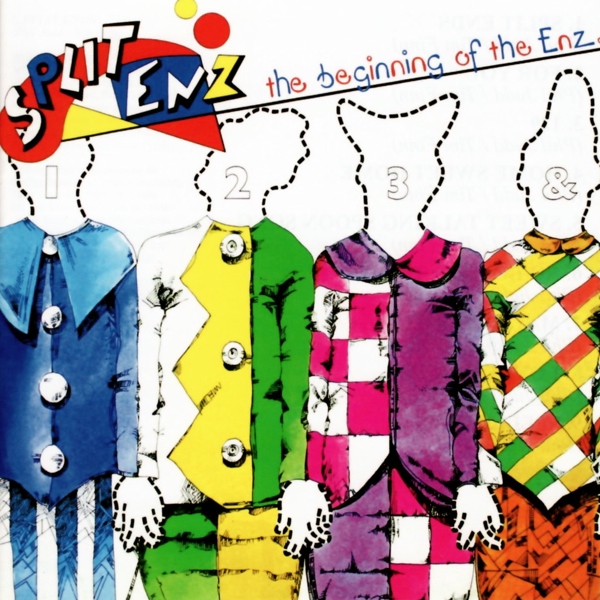
1979, 8.5/10
The Beginning of the Enz is a collection of the nine Split Enz tracks released on the singles leading up to their 1975 debut Mental Notes. It’s not to be confused with another compilation of the same name that collates highlights from their early albums.
The material on The Beginning of the Enz is different in feel than Mental Notes; less intense, and not as ambitious as the multi-part suites of their first album. Without Eddie Rayner’s keyboards on the first five tracks, the band’s sound is markedly different, based around acoustic guitars and flute. There’s a pastoral feel, but with a distinctly New Zealand flavour, like the “Maori strum” guitar rhythm of ‘Spellbound’.
These songs are some of Split Enz’s most obscure, not often ending up on compilations, but they’re some of the band’s best work, tuneful pieces from a fresh young band. Some of these songs were reworked for later albums; ‘129’ later became ‘Matinee Idyll’, but it’s already excellent here, while ‘Spellbound’ was reworked for Mental Notes and ‘Lovey Dovey’ for Second Thoughts. The album starts with ‘Split Ends’ (the band’s original name), with its memorable line “Writing letters to my friends/Telling them all about Split Enz.” There are pretty acoustic songs like ‘For You’ and more idiosyncratic pieces like ‘Sweet Talking Spoon Song’ and ‘Malmsbury Villa’, but they’re all excellent.
It’s a world away from the new wave hits that Split Enz are most remembered for, but there’s a lot of great material on The Beginning of the Enz, and it’s an essential appendix to their discography.
Mental Notes
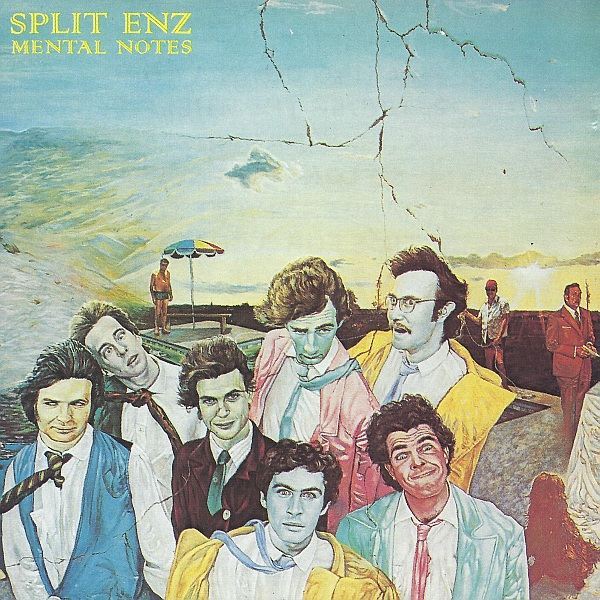
1975, 9.5/10
Mental Notes is Split Enz’s debut album, recorded in Australia. It’s an unsettling mixture of creepy Phil Judd material, pretty ballads, and music hall vamps. While it sounds inspired by bands like Genesis, Judd’s psychotic vocals and disturbing subject matter, as well as the dual front-man approach, give Mental Notes a unique atmosphere. The production values are low, giving Mental Notes a murky and unclear veneer, but that only adds to its mystique.
Judd’s at his most disturbing on songs like ‘Under The Wheel’, with chilling lyrics like “Death/Is just another appointment to keep.” There’s bouncy, music hall inspired pop on ‘Amy (Darling)’ and ‘Maybe’, while Judd’s voice imbues ‘Spellbound’ with mystique. There are also pretty songs like the acoustic ‘Titus’, where the more pure voice of Tim Finn provides a contrast to Judd, and Finn fronts the beautiful ‘Time For A Change’.
Mental Notes was a breakthrough album for New Zealand rock music, as previously New Zealand acts hadn’t produced many noteworthy albums. It’s often ranked high among surveys of New Zealand’s best ever albums, and deservedly so.
Second Thoughts
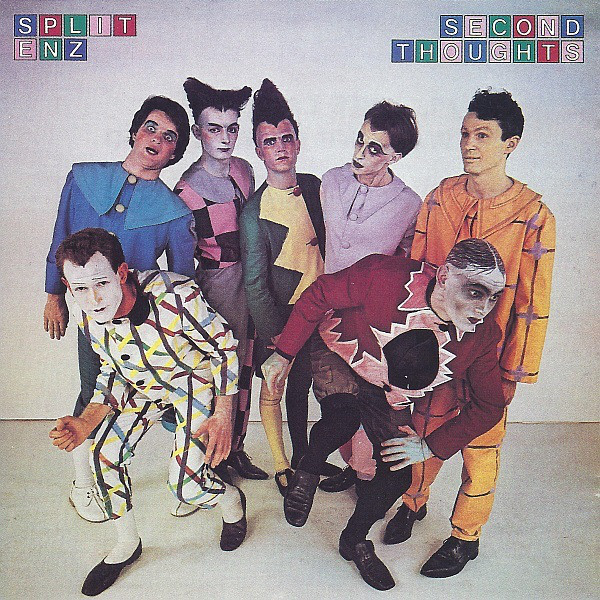
1976, 8/10
Roxy Music guitarist Phil Manzanera offered to assist Split Enz with their second album, and the group relocated to England. Second album is something of a misnomer for Second Thoughts, as it’s essentially a revised version of their debut; all but two of the songs had previously been recorded by the group. While it’s more professional sounding than the debut, with Manzanera producing, it’s also less unique; Mental Notes has a unique magic of its own which isn’t captured here.
The decision to rework the old songs caused tension within the band – Judd already had plenty of new songs that he wanted to work on, and the two new songs here, ‘Sweet Dreams’ and ‘Late Last Night’, are both very strong; punchier and more accessible, without losing the complex structures of their earlier work. Additionally, ‘The Woman Who Loves You’ was an outtake from Mental Notes, so Second Thoughts was its first release.
It’s difficult to know what to rate Second Thoughts, given that a lot of the songs are revisions, but in my opinion it’s different enough in feel from Mental Notes that it stands as a distinct work, and the quality of the actual music is uniformly strong.
Dizrythmia
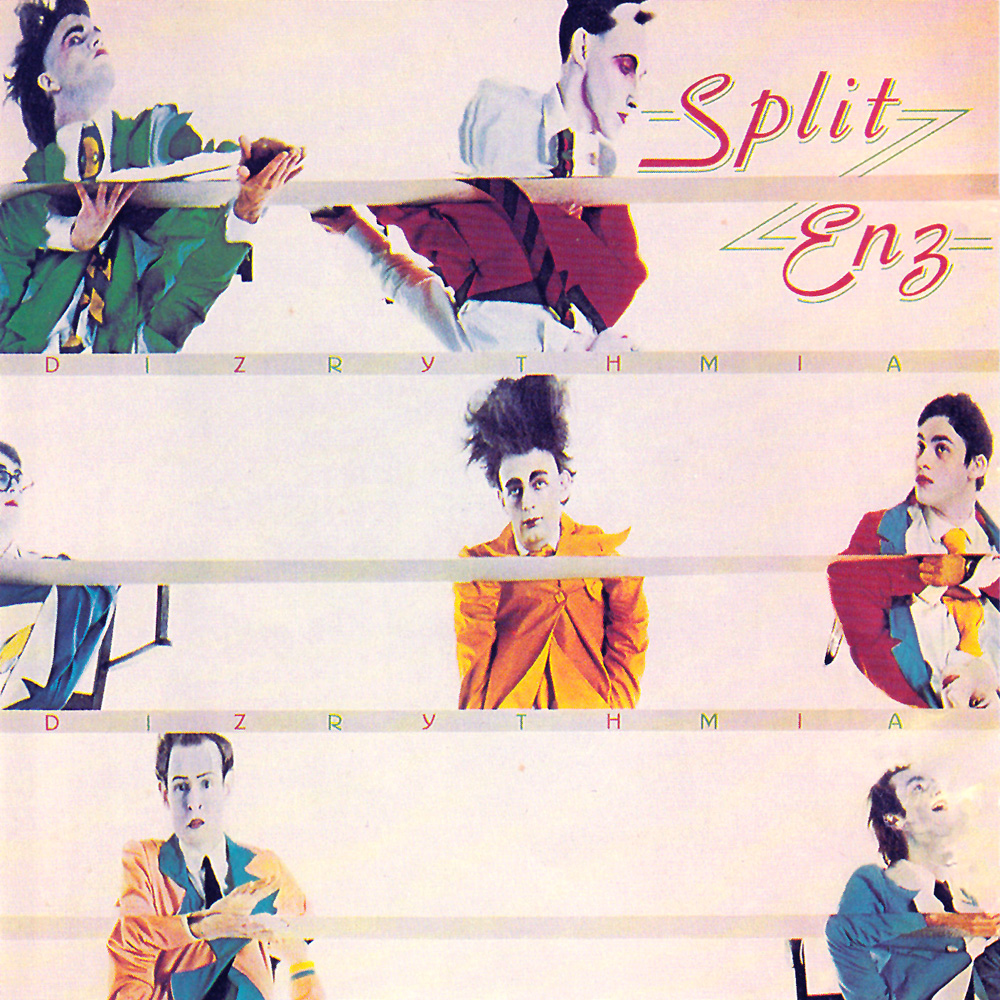
1977, 7.5/10
Dizrythmia was a transitional album for Split Enz; founding members Phil Judd and Mike Chunn had left the group, leaving only Tim Finn, Noel Crombie, and Eddie Rayner from the lineup that recorded Split Enz. The group recruited an English bass player, Nigel Griggs, to join English drummer Malcolm Green who had recently joined, while 18 year Neil Finn was flown over from New Zealand to replace Phil Judd.
This formed the lineup that would enjoy commercial success with True Colours and Waiata – although saxophonist Rob Gillies would leave before the next album – but Dizrythmia mostly maintains the sound of the Phil Judd era. The opening two songs, ‘Bold as Brass’ and ‘My Mistake’ are concise and accomplished pop songs, and sound more like radio hits than anything the band had released previously, with undeniable instrumental hooks – the solo in ‘My Mistake’ is a stridently whistle-able melody.
Elsewhere the material is more akin to their Judd-era; while Judd doesn’t appear on Dizrythmia, he has the sole writing credit on ‘Sugar and Spice’, and co-writes on ‘Nice To Know’ and ‘Jamboree’. Judd bought an engaging creepiness to Split Enz, and without him they can sound bland; Tim’s lyrics feel hollow on songs like ‘Without A Doubt’, but Dizrythmia is generally strong musically. The multi-part closer ‘Jamboree’ is goofy but entertaining musically, while the ballad ‘Charlie’ became a live favourite.
Dizrythmia doesn’t quite measure up to the band’s earlier work, although it’s a triumph for Tim Finn that he released a solid art-rock album without much input from Judd. But the album’s biggest triumphs were the pop singles, and Split Enz would follow this direction on their next record.
Frenzy
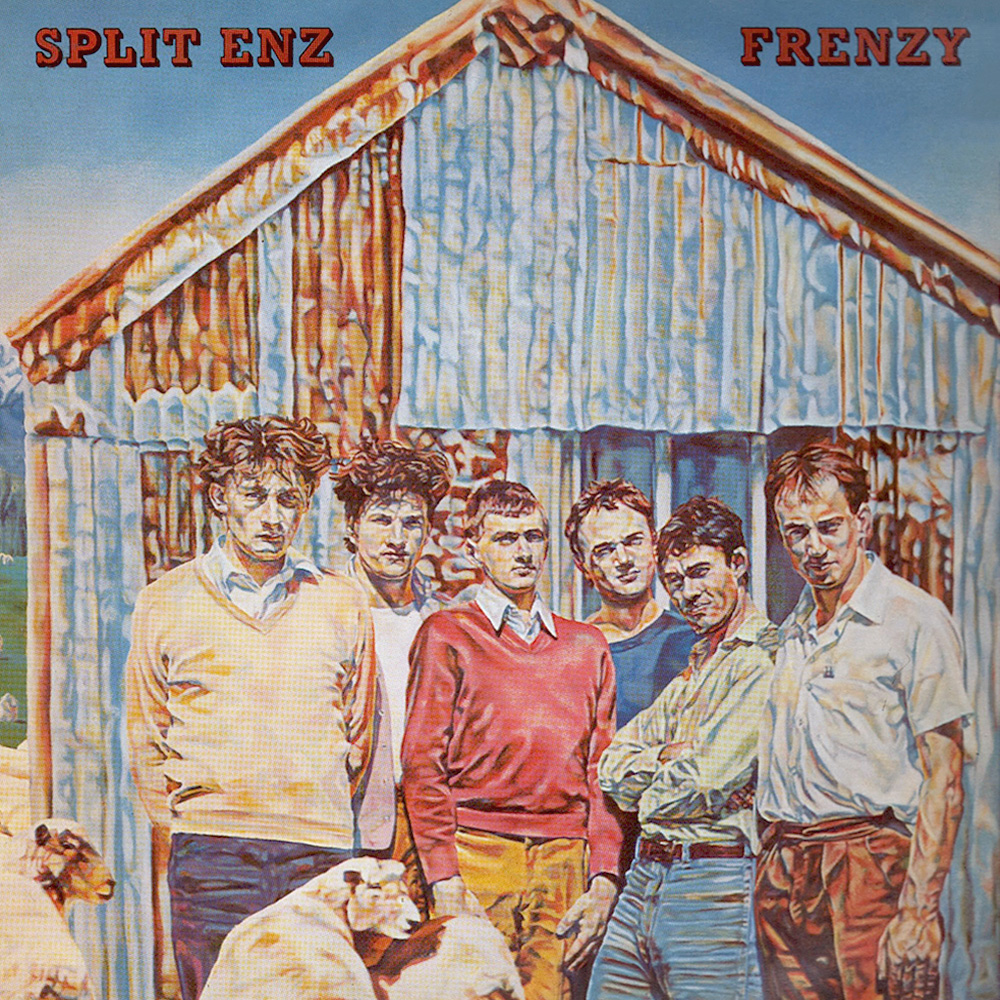
1979, 5.5/10
On Frenzy, Split Enz transitioned into shorter songs, although they’re still self-consciously arty. The result is one of the group’s weaker albums, which is not helped by an unclear sound from inexperienced producer Mallory Earl, compounded by the decision to add previously recorded single ‘I See Red’ to the album, taking the first side of the LP past the optimum length for sound quality. It was surprising hearing the remixed version of ‘Stuff and Nonsense’ on the Spellboundcompilation, where there was a gorgeous acoustic guitar part that was previously inaudible.
The group have stated that the Frenzy album didn’t capture the excellence of demo tapes they recorded, which were later released as the Rootin Tootin Luton Tapes in 2007, and Tim’s ‘Semi-Detached’, an excellent out-take that also appears on Spellbound, also demonstrates that Frenzy didn’t showcase the best material the group had on hand at the time.
There are a few great songs here; the single ‘I See Red’ was added to later copies of the album, and it effectively launched the group’s career in New Zealand and Australia, while ‘Give It A Whirl’, co-written by Neil, also brings a heavy guitar attack. ‘Hermit McDermitt’ is a demented sing-along, while ‘Stuff And Nonsense’ is a vulnerable Tim ballad. But the second half of Frenzy is tough going, especially with the poor sound.
Frenzy was remixed and re-released in 2006, and I imagine that the new version is more enjoyable, and that the Rootin Tootin Luton Tapes are also worth checking out. But in its original form, Frenzy is an underwhelming and awkward transitional effort between Split Enz’s arty phase and their pop phase.
True Colours
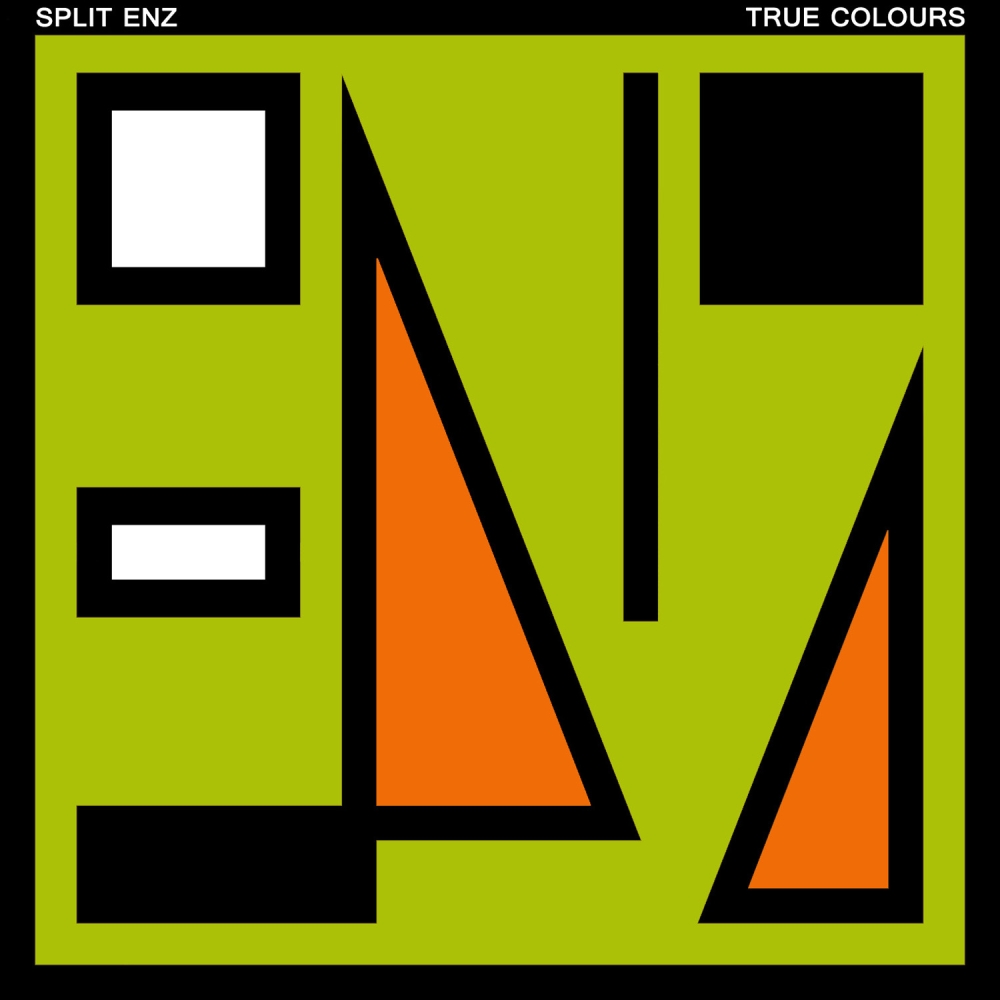
1980, 7.5/10
On True Colours Split Enz reunited with ‘I See Red’ producer David Tickle, who’d previously engineered hits by Blondie and The Knack. The 20 year old Tickle provided the group with state of the art production, stripping back their sound to simpler rhythms and arrangements, and pulling the previously arty, insular group into the mainstream.
The hit from the album was Neil’s ‘I Got You’; its “I don’t know why sometimes I get frightened” chorus was a deserved chart topper in New Zealand and Australia, and successful in Canada and the UK. ‘Poor Boy’ benefits the most from the stripped down sound with the synth bleeps emphasising its extra-terrestrial subject matter, while piano ballad ‘I Hope I Never’, about Tim’s relationship with Judd, is pretty and tuneful. The group’s sound veers close to power pop on songs like ‘Shark Attack’ and ‘What’s The Matter With You’.
True Colours isn’t my favourite Split Enz album; the lack of detail and personality compared to some of their other work makes it a middle of the pack Split Enz album, and the hits are its most notable feature. But it provided a group that needed success with record sales, and the hits hold up well.
Waiata
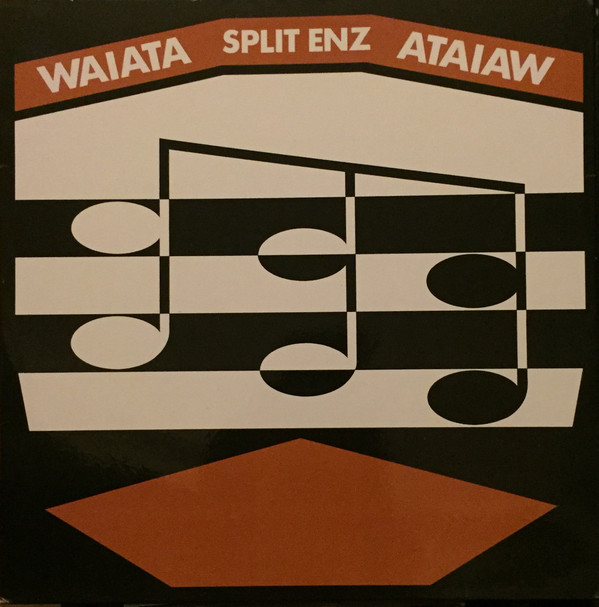
1981, 7/10
Split Enz again employed David Tickle for Waiata, and a newly famous Tickle was more difficult to work with this time around. It’s easy to dismiss Waiata as an inferior version of True Colours, and it is a case of slightly diminishing returns, but it’s still a solid Split Enz album.
The biggest issue with Waiata is that some of Tim’s songs, such as ‘I Don’t Wanna Dance’ and ‘Clumsy’, are awkward. But Tim does provide the strong opener ‘Hard Act To Follow’ while ‘Ghost Girl’ has a lilting melody. Neil’s impeccably solid here, supplying the singles with the power pop of ‘History Never Repeats’ and the gently slinking ‘One Step Ahead’, as well as the strong album track ‘Iris’. Rayner’s instrumental ‘Wail’ is also among the highlights from Waiata.
I have the 2006 version of Waiata, which changes the order of the track-listing significantly, and adds a strong b-side ‘In The Wars’.
Time and Tide
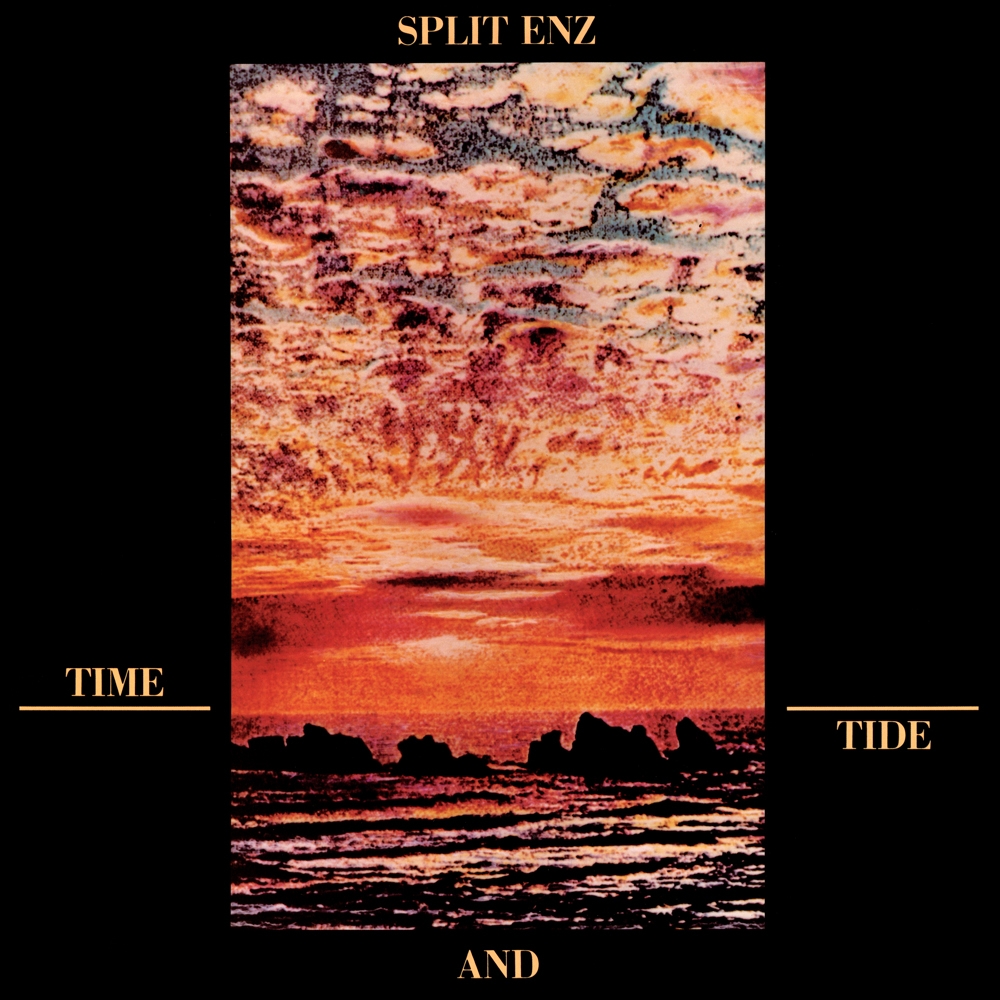
1982, 9/10
True Colours and Waiata were strong pop albums, but they felt somewhat facile and unsatisfying. With the help of producer Hugh Padgham, Split Enz explored more interesting sonic territory on Time and Tide, without sacrificing the pop hooks, resulting in the most satisfying album of their pop era. The album was informed by difficulties in Tim Finn’s life; he’d gone through a marriage breakup and a nervous breakdown, and these travails are reflected in songs like ‘Haul Away’. Malcolm Green left after Waiata, and Noel Crombie took over as the drummer, while bass player Nigel Griggs is unusually prominent, contributing to four of the album’s songs.
Tim Finn’s songs are more personal than ever before, particularly the jaunty sea-shanty autobiography ‘Haul Away’. Tim’s major contribution is the epic ‘Six Months in a Leaky Boat’, which goes a long way towards explaining New Zealand’s national insecurity (“the tyranny of distance”); the song was banned by the BBC, as it was released uncomfortably hard on the heels of the Falklands War. ‘Dirty Creature’ is a tale of Tim’s anxieties represented as a nasty beast, with the group laying down a convincingly funky groove and Tim using his gorgeous high range in the chorus.
Neil Finn’s songwriting veers suddenly into the realm of fantasy, with efforts like ‘Log Cabin Fever’ and ‘Giant Heartbeat’. Coupled with Finn’s guitar heroics, lyrics “like a zephyr harmonising with a flute”, and Rayner’s ominous synthesizers, the latter in particular feels inspired by progressive rock. Neil’s highlight is the jaunty ‘Take A Walk’, with some lovely piano. Rayner contributes ‘Pioneer’, which serves as a prelude to ‘Six Months in A Leaky Boat’.
Time and Tide is the high water point of Split Enz’s pop-era albums, and one of the strongest albums that the Finn brothers have created.
Conflicting Emotions
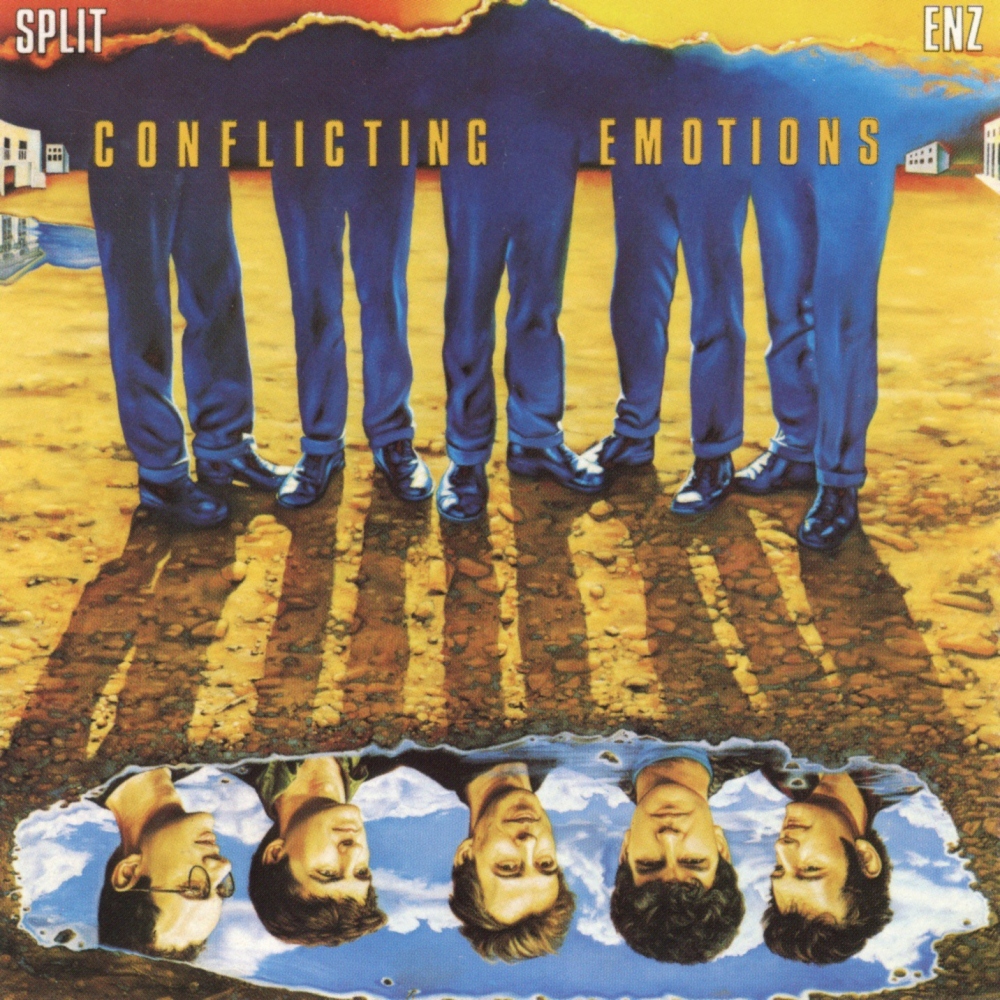
1983, 5/10
Tim Finn released his debut solo album Escapade in 1983, and was still promoting it when the recording of Conflicting Emotions started. As a result, for the first time Neil was the senior partner in the band, writing six of the ten songs, while Tim sounds distracted, and even his best songs are filler. There’s a less ornate sound, most of the percussion is from drum machines, and it all adds up to Split Enz’s least interesting album.
Despite all of Conflicting Emotions‘ problems, there’s at least one classic song contained within; Neil’s ‘Message To My Girl’, a tuneful, uptempo ballad dedicated to his wife (“It’s no New Years resolution, It’s more than that.”). Neil also contributes ‘The Devil You Know’ and the single ‘Strait Old Line’, but otherwise his contributions are below par, even if the introspective lyrics of ‘Our Day’ are touching. Tim’s songs are uniformly poor, not surprising when he’d just released a solo album.
If you already have the excellent compilation Spellbound, which cherry picks the three best songs from Conflicting Emotions, there’s little else of interest here. Surprisingly, the cover art was painted by Phil Judd.
See Ya ‘Round
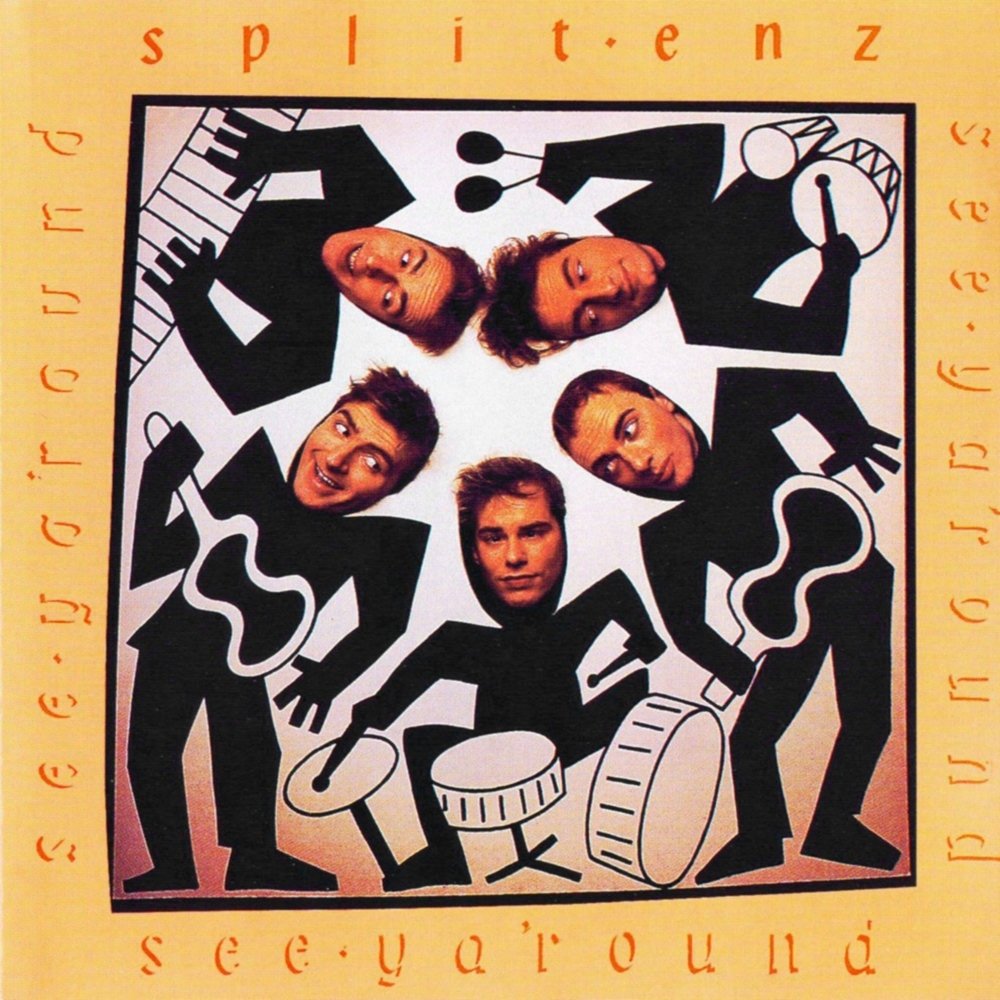
1984, 5.5/10
Distracted with solo success (‘Fraction Too Much Friction’ was a hit) and a relationship with actress Greta Scaatchi, Tim Finn’s contributions to 1983’s Conflicting Emotions were substandard and he left Split Enz. The group soldiered on for one last album without Tim; Noel Crombie was relegated back to percussion, while future Crowded House member Paul Hester signed up as drummer.
Sibling rivalry was always an important factor in the Finn’s songwriting in Split Enz, while Neil Finn was accustomed to only contributing three or four songs to previous albums. His solution for See Ya ‘Round was to write the first side of the record himself, and for each member to contribute a song to the second side. Essentially See Ya’ Round is willfully second-rate, but it’s not a terrible swan-song.
Finn’s songwriting is workmanlike on the first side; ‘Years Go By’ is musically compelling but uncharacteristically lyrically shallow (“Years go by/Wonder what you did/But in a minute you can change your life/It all depends on your state of mind/One thing to be sure of is we live and die.”). ‘One Mouth is Fed’ also has shallow sentiments, while ‘Voices’ is plain gorgeous. The second side is at least interesting; Rayner’s ‘The Lost Cat’ and Griggs’ ‘Adz’ are solid enough, while the silly vocals on Crombie’s Ninnie Knees Up’ are at least entertaining. ‘This Is Massive’, with Hester on lead vocals, is arguably the most frenetic song Split Enz ever recorded.
See Ya’ Round is clearly one of Split Enz’s weaker albums, but it’s at least fast paced enough to be entertaining.
Spellbound

1997, 9/10
Split Enz are still unchallenged as New Zealand’s most significant music group, over a decade long recording career that saw them transform from mid-seventies art-rockers to early eighties new wave pop sensations. A compilation’s a pretty good option for exploring their catalogue, and this double disc, featuring excellent remastered sound quality that’s a long way above their other releases, is the best available option.
Interesting features include a remixed version of ‘Stuff And Nonsense’ that blows the Frenzy version out of the water, the previously unreleased ‘Semi-Detached’, a paranoid Tim song that’s among the best the Enz ever recorded, complete with some uncharacteristic guitar hero soloing from Neil, and ‘Another Great Divide’, an excellent early song that never made it onto a studio album. Having all their eras mixed together in one place, it’s noticeable that perhaps it’s their early work that’s most consistent and has arguably stood the test of time the best; songs like ‘Sweet Dreams’, ‘Maybe’ and ‘Another Great Divide’ still sound lush and bouncy, even as synth dominated hits like ‘Poor Boy’ and ‘Shark Attack’ are tied to their early 1980’s era.
Spellbound is not without its problems – the sequencing is all over the place (the first disc is generally dedicated to the hits and the second to the more idiosyncratic material, but it’s confusing and a simple chronological approach may have been more satisfying), the booklet is clinically uninteresting, and there are a few surprise omissions – like ‘Hard Act To Follow’ from Waiata and ‘Spellbound’ – but it does place 39 of Split Enz’s best songs in one place, and it’s an excellent starting point. If you enjoy it, you should investigate their best albums like Mental Notes,Time and Tide, and The Beginning of the Enz.
There’s also a sixteen track Australasian compilation available, History Never Repeats, that concentrates on Split Enz’s early 1980s hits – it’s an extremely coherent and enjoyable record (when I bought it in my mid-teens, I played nothing else for a couple of weeks straight), and if you want to bypass the group’s earlier work it’s a better option than this more comprehensive collection.
Ten Best Split Enz Songs
Sweet Dreams
Message To My Girl
Late Last Night
Six Months In A Leaky Boat
Time For A Change
Dirty Creature
Take A Walk
Another Great Divide
Spellbound
History Never Repeats
ENZSO

1996, 4.5/10
ENZSO was the brainchild of Eddie Rayner, who arranged songs from Split Enz’s catalogue with the New Zealand Symphony Orchestra and the National Youth Choir. Most of the early 1980’s Enz line-up is involved; Rayner plays piano, the Finns sing most of the lead vocals, along with Dave Dobbyn and Annie Crummer, while Noel Crombie makes a cameo appearance on spoons in ‘Strait Old Line’. ENZSOcovers every Split Enz album over its twelve songs, ranging from the art-rock of 1975’s debut Mental Notes to the straightforward pop of 1984’s swansong See Ya’ Round.
ENZSO is not something that I’d voluntarily purchase; I won it in a radio contest. While Rayner claims in the liner notes that some of the songs were ‘begging for an orchestral arrangement’, I’d still rather listen to the original versions in most cases; the synth bleeps of ‘Poor Boy’ are more appropriate than the string backing on this record to my ears, and the orchestral arrangements work best on the early, ambitious material. Poet Sam Hunt is effective fronting ‘Under The Wheel’, while the multi-part structure of ‘Stranger Than Fiction’/’Time For A Change’ is also better suited to the orchestral format than the more pop-oriented material.
There are stretches where ENZSO is essentially a bunch of pop songs slowed down and drawn out to six minutes, slathered with orchestration and fronted by singers who don’t have the technical faculty to sing with an orchestra. ENZSO draws attention to some overlooked material; the gorgeous ballad ‘Stuff And Nonsense’ gained profile after being featured here, while ‘Message To My Girl’ is a great song even in this drawn out form.
ENZSO has some merit, but I find it a struggle to sit through seventy minutes of it.
ENZSO 2
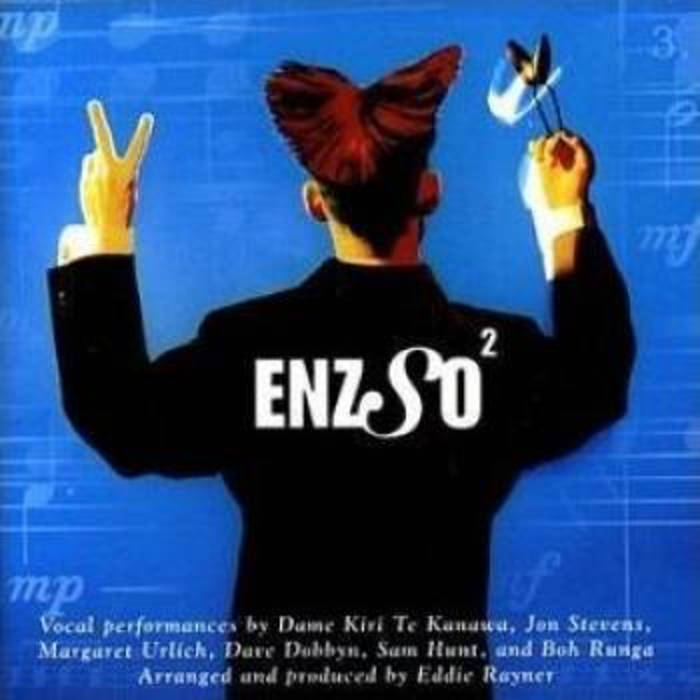
1998, 5/10
The first ENZSO album sold like hot-cakes to thirty five year old yuppies, so it’s hardly surprising that a sequel followed a couple of years later. Rayner’s learned from the experience of the first album, and as a result the sequel has richer orchestration, with brass and woodwinds playing interesting lines rather than the piano and strings approach of the first record. It’s also kept to a more manageable length.
There are still plenty of hits like ‘Six Months In A Leaky Boat’, ‘Shark Attack’ and ‘History Never Repeats’ to go around, while it digs up more early gems like ‘Maybe’ and ‘Semi-Detached’. Both Finns were unavailable due to solo commitments, so Rayner was forced to recruit a bunch of New Zealand b-grade celebrities like Jon Stevens and Boh Runga to complement Dobbyn and Hunt, who reprise their roles from the earlier album. Opera diva Dame Kiri Te Kanawa is burdened with ‘Bon Voyage’, one of the most generic songs in the entire Split Enz catalogue.
Again, it’s the early songs that lend themselves best to orchestration. Dobbyn’s swaggering take of ‘Maybe’ is in the spirit of the original, naively throwing out lines like ‘I’m just a country boy, can’t you see that I’m still green.’ Margaret Urlich does a great job on obscure b-side ‘Semi-Detached’, originally released in 1979; it’s one of Tim Finn’s best compositions, originating on the Rootin’ Tootin’ Luton tapes that were later watered down to create Frenzy. The instrumental takes on ‘Pioneer’, ‘Six Months in a Leaky Boat’ and ‘Frenzy’ are also entertaining enough.
It’s quite an accomplishment that this sequel measures up to the original despite the absence of the Finn brothers; Rayner definitely has an aptitude for orchestration, but it would be much more interesting to hear an orchestrated version of Mental Notes.
Forenzics
Shades and Echoes

2022, 7.5/10
It’s not uncommon for established acts to rework the songs they wrote in their youth -popular music history is full of unplugged albums and orchestral reworkings. But former Split Enz members Tim Finn and Eddie Rayner have approached the material from the early years of their celebrated band in a different way on Shade and Echoes.
The project’s genesis goes back to 1976 when Rayner was recording the rhythm section for the song ‘Walking Down A Road’ with Roxy Music guitarist Phil Manzanera. Fellow Roxy alumni Eno came into the studio and remarked on his enjoyment of the barebones rhythm track. This inspired the repurposing of Enz songs on Shades and Echoes. Rayner said “a large part of the album is short snippets of Split Enz songs we felt perhaps might have originally been underused, where we felt we could add rhythm tracks and new melodies over the top.”New songs are developed from fragments of old ones – sometimes it’s blatant, like the recycling of the introduction for ‘Give It A Whirl’ on ‘Shut the Door’, while other songs on Shades and Echoes were developed by jams by keyboardist Eddie Rayner and his band. Former Enz percussionist Noel Crombie plays on the record, while Manzanera plays guitar on a couple of tracks.
The ideas behind Shades and Echoes are unique enough that it made me interested in the record, but it stands up really well in its own right – it’s much more enjoyable than Rayner’s reworkings of Split Enz material as ENZSO in the 1990s. I haven’t followed Tim Finn’s solo projects for years, but he’s excellent here – hitting the right blend between nostalgic, romantic elder statesman and recalling some of the zaniness of his days in Split Enz. He’s suitably pretentious on standout track ‘Premiere Fois’, while the track based on ‘Walking Down The Road’, ‘Walking’ is a great opener.
Shades and Echoes is surprisingly satisfying, recycling vintage Enz ideas into new forms.
Back to New Zealand album reviews…
8 Comments
Leave a Reply
Related Pages
About
Aphoristic Album Reviews is almost entirely written by one person. It features album reviews and blog posts across a growing spectrum of popular music.
Review Pages
Read about the discographies of musical acts from the 1960s to the present day. Browse this site's review archives or enjoy these random selections:
Blog Posts
I add new blog posts to this website every week. Browse the archives or enjoy these random selections:
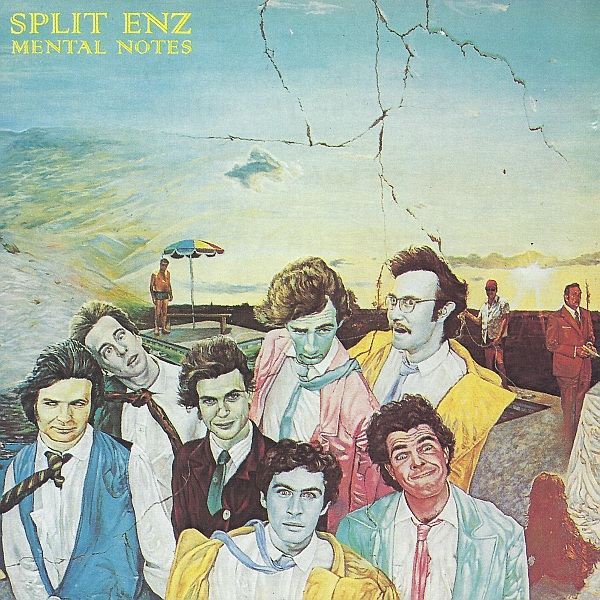
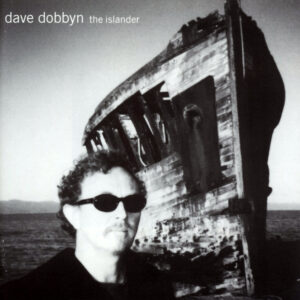

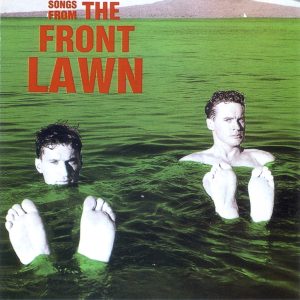
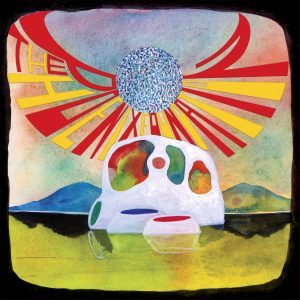
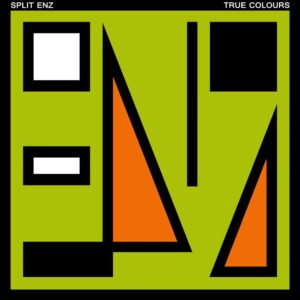
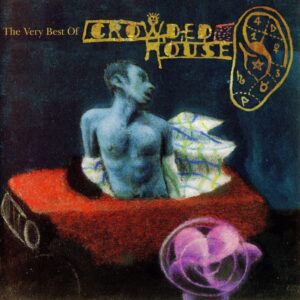
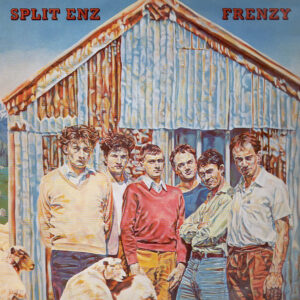

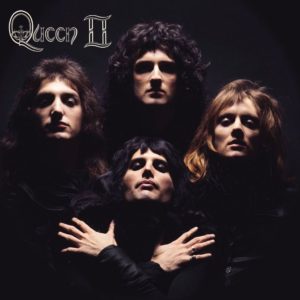
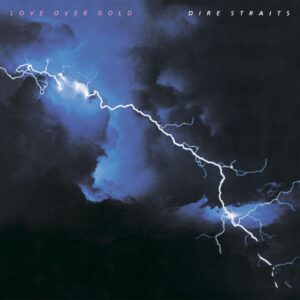
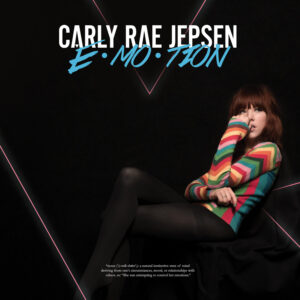
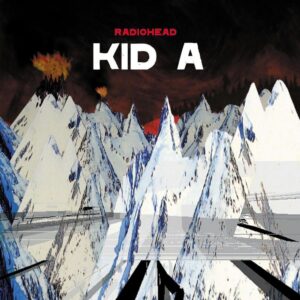

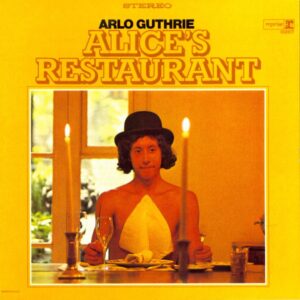
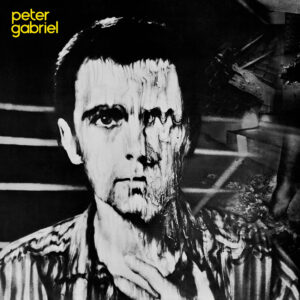
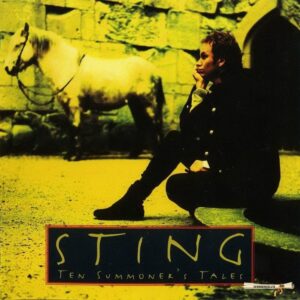

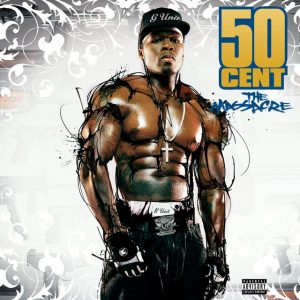
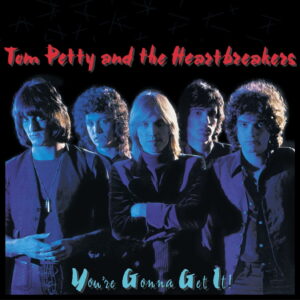
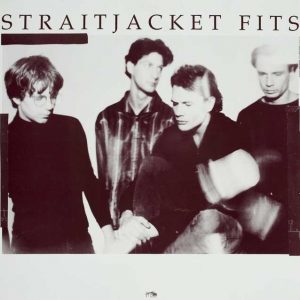




Great post. I’ve always enjoyed I’ve Got You and I See Red but didn’t know where else to start.
Cool! If you can find Spellbound, it’s pretty great.
Absolutely exceptional writing by two brothers with somewhat contrasting styles and character to their compositions, ranging from groundbreaking lively numbers to beautiful ballads to carnival to sea shanty to whatever. Much of this seems to be a wonderful result of the two different temperaments of Tim and Neil Finn, perhaps in a similar way that the creative and critical interplay forged classic songs of Paul McCartney and John Lennon. But a lot of credit must also go to Eddie Rayner’s arrangements – as close to greatness as any other great band’s, anywhere, anytime. A great shame that they couldn’t have kept the partnership going a bit longer – the music was extraordinarily diverse, rich and lyrical.
Thanks for writing in! Did you like Crowded House’s Woodface and the 1995 Finn album as well?
I think I owned two Split Enz albums at one time and the one Crowded House album, but I never really learned the whole albums. But what I do remember is how great the songs I Got You, Sandy Allen, and Six Months in a Leaky Boat were. They were some of the best hit singles ever.
Time and Tide (where two of the songs you mentioned come from) is a great album. I find Tim Finn an inconsistent writer, but he’s great there.
I hope they re release the Rootin Tootin Luton Tapes again- hopefully the 2CD version.
I found them in a department store for 6.99 a few years ago – probably should have grabbed them…